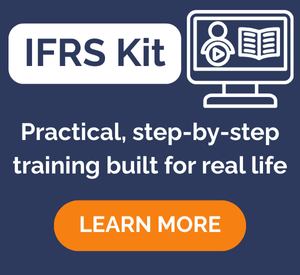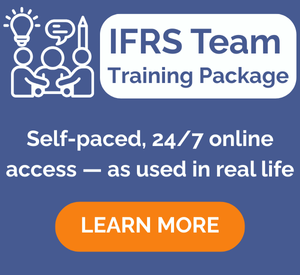The first job or the actual job?
Question
IAS 19 requires an entity to recognise a liability when an employee has provided service in exchange for employee benefits to be paid in the future.
What is our starting point when to recognize a liability related to defined benefit plan? Is it:
- The day the employee started their first job, or
- The day when the employee started to work for the company which is providing her this benefit at the and of her work?
Answer
The liability from defined benefit plan is mostly created by the legal obligation (e.g. employment contract), but it could be created by the constructive obligation, too. Obligation of an entity is created when an entity has no alternative but to settle it. In this case, it happens when an entity – employer enters into the contract with the employee.
Think of this: When the employee has the first job with employer A, and then the second job with the employer B, is the employer B liable to pay for the work that employee did for the employer A?
No, because there is no obligation between employer B and the employee created in return for employee’s work for A. Employer B is liable from the moment of entering the contract with the employee.
However, watch this out well, because there might be a clause in the employment contract when B would be liable also for A. It mostly happens when there are mergers, or transfers of employees between related parties.
Tags In
JOIN OUR FREE NEWSLETTER AND GET
report "Top 7 IFRS Mistakes" + free IFRS mini-course
Please check your inbox to confirm your subscription.
Leave a Reply Cancel reply
Recent Comments
- mahima on IAS 23 Borrowing Costs Explained (2025) + Free Checklist & Video
- Albert on Accounting for gain or loss on sale of shares classified at FVOCI
- Chris Kechagias on IFRS S1: What, How, Where, How much it costs
- atik on How to calculate deferred tax with step-by-step example (IAS 12)
- Stan on IFRS 9 Hedge accounting example: why and how to do it
Categories
- Accounting Policies and Estimates (14)
- Consolidation and Groups (25)
- Current Assets (21)
- Financial Instruments (56)
- Financial Statements (54)
- Foreign Currency (9)
- IFRS Videos (74)
- Insurance (3)
- Most popular (7)
- Non-current Assets (56)
- Other Topics (15)
- Provisions and Other Liabilities (46)
- Revenue Recognition (27)
- Uncategorized (1)



